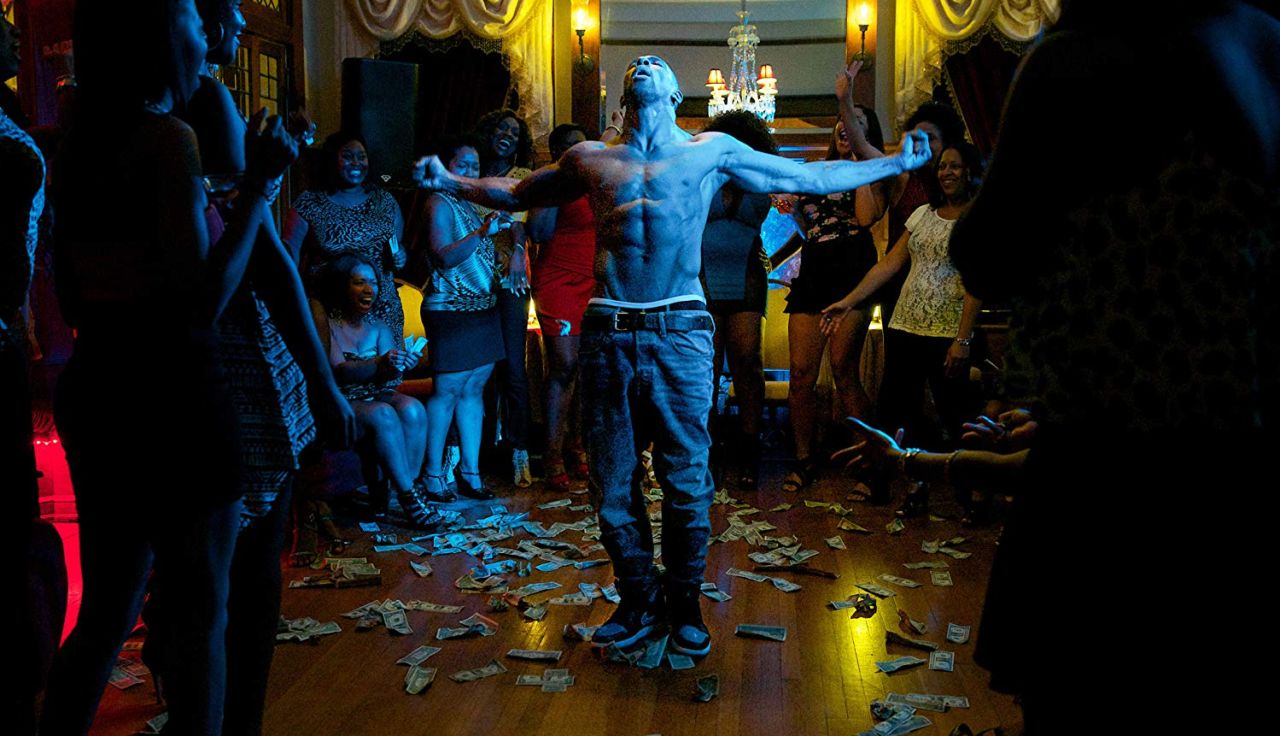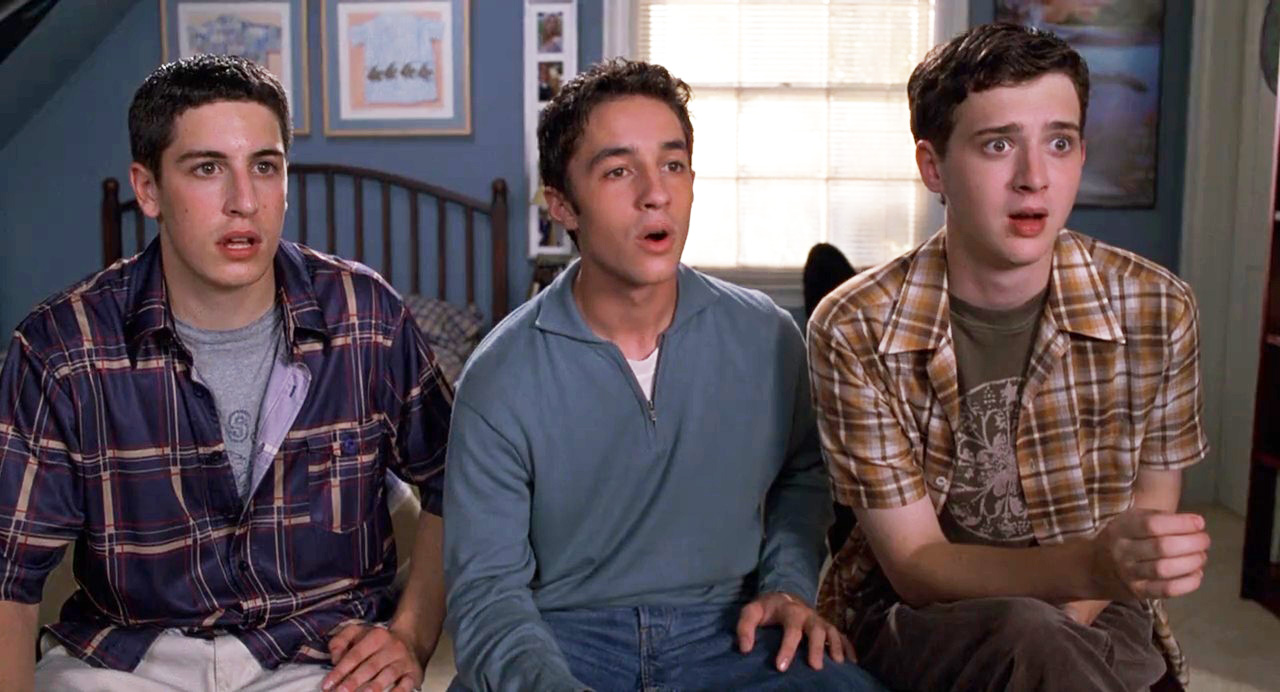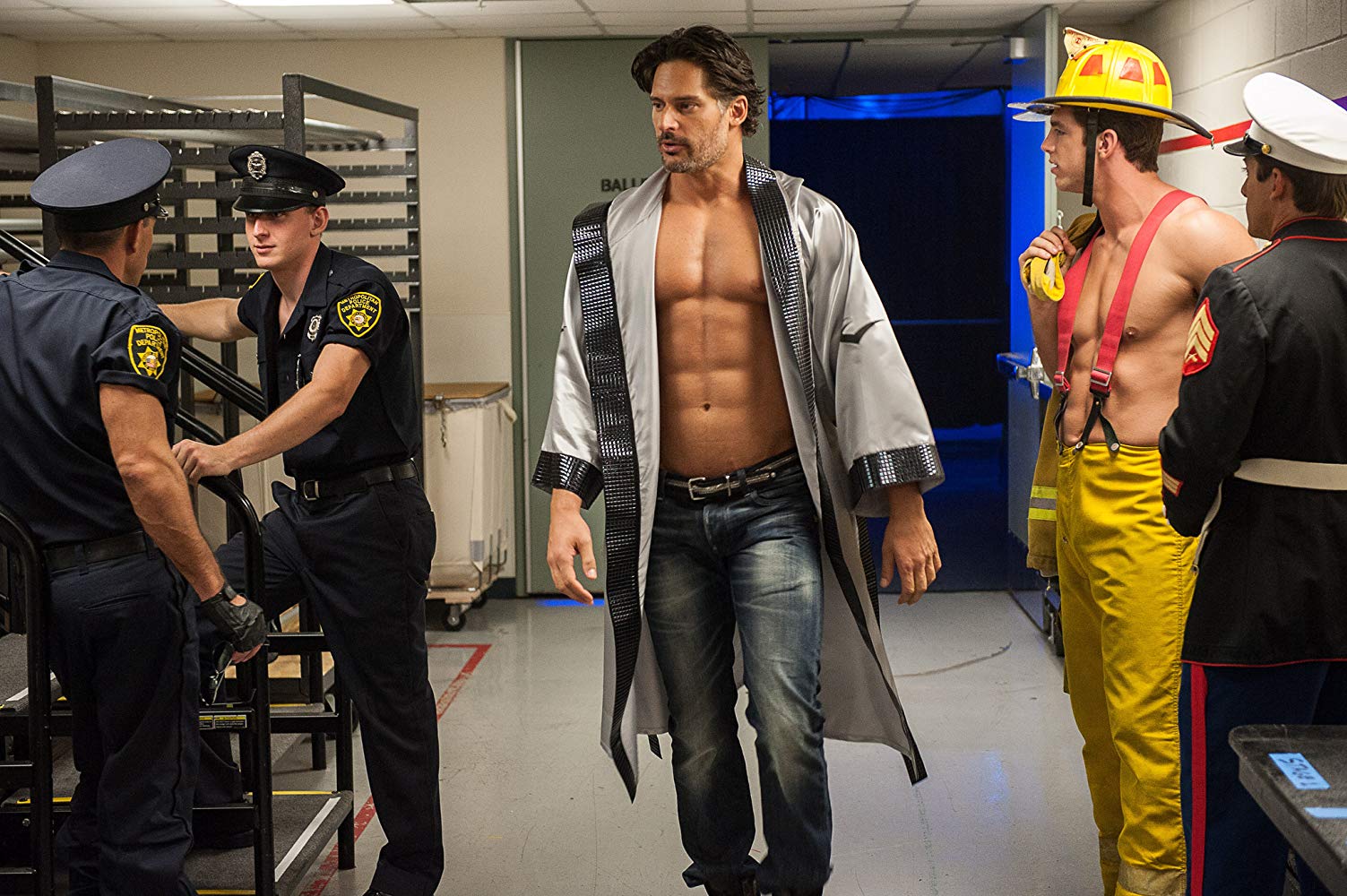SENSITIZING THE SCRIPT
Interview with Sensitivity Reader Alex Creswick


There’s a new job title making waves in Hollywood. Sensitivity reader. What’s a sensitivity reader you ask? Also known as an authenticity or expert reader, a sensitivity reader is a person who is hired to read through a script to flag it for potentially offensive content that the writer(s) may not have noticed when writing their script.
PROVOKR recently got the chance to interview LA-based sensitivity reader, Alex Creswick. This interview has been edited for length and clarity.
First, how did you get into this?
Alex Creswick: Two things kind of happened at once. I was leaving my day/desk job to go freelance producing and development executive work, and one of my friends was producing a very raunchy, r-rated sex comedy. You know, college-age girls, graduating, and funny things happening. And he specifically asked me to do a consent pass. To read the script to make sure there wasn’t anything that he, as a man, the writer of the script and the director of the script, all men, and he just wanted to make sure that they didn’t have anything that was unconsensual in there. And I flagged a couple of scenes and kind of explained to him why women would not have responded to this. Either female characters were responding in a way that just doesn’t make sense or in one case it was an “uncle bad touch” joke is lowkey an incest joke, and a lot of people just don’t recognize that, and the second you tell them you see it hit and they’re like oh, no. And they’re mortified and horrified. So that’s sort of what I do in a nutshell.
And so after doing that film, you sort of started having other people ask you to do that same thing?
AC: Kind of. I got a reputation for having that lens through which I’m reading stuff. So people tend to know that, and they were asking me to do that kind of reading anyways. Because part of what you do in the film industry is you get your friends to read your stuff to see what they think. And people were coming to me specifically for that kind of thought and comment. And then I realized this is actually a job that exists. It exists in book publishing, which is sort of where we’re borrowing all of our terminology and stuff. I was like oh, we should definitely be doing this for film and television, because what a great resource.
I can think of a lot of movies where there are scenes that they could’ve used someone to come on to the script and say, yeah that doesn’t fly, at all. Are there a lot of other sensitivity readers in film and TV now, or is it still a really small group?
AC: It’s a very small group. It’s interesting, because there are certain ways in the film industry you can adjust for it. You can create writers’ rooms that are diverse and basically act as. Some development execs are very tuned in in a way I would describe as doing this kind of sensitivity reading.

So I take it, unlike with an intimacy coordinator, I know now there are actually organizations of intimacy coordinators, there’s no thing like that for sensitivity readers yet?
AC: No, and I think that’s a much more important thing for an intimacy coordinator because they’re dealing with imminent bodily harm and trauma, whereas this is based in story. Everything we’re doing is sort of theoretical until you actually go and shoot it. So there’s not really a licensing thing, and I don’t even know what that would look like honestly. People have asked me, “Do you teach a workshop on it”, and I don’t even know what that would look like. What kind of test you would give someone? I do a very sort of academic approach, I have been a development executive for a very long time, have experience doing that. It’s so new, I don’t really have any answers for you. I don’t know how you even start doing that but I think hopefully we’re all gonna find out together.
Yeah, maybe if not an organization, maybe just groups of people who do it meeting up with each other and saying this is what’s important to us now.
AC: GLAAD in LA actually offers authenticity reading by queer, trans, anybody who falls under that umbrella. Any show can call them up and they will authenticity check scripts. So there are special interest groups that offer that. You just need to tell people it’s there.
I know the Korean movie, The Handmaiden, they had basically the same thing. He (Park Chan-wook) hired a friend of his to come on and go through the entire script as a queer woman. Then she was on set when they filmed anything sensitive to be like the point person for the actors. Which they said was the most helpful thing, it made them comfortable.
AC: At its core, it’s all just about harm reduction and intentionality. And making sure that everyone’s intent is just kind of matching, which is one of the most important parts of making a movie when you have so many different points of view trying to make the same thing. I think a lot of times the intent of where everyone’s coming from does matter. Because if you’re coming from the same intention you’re moving towards the same conclusion. And that works from story to intimate or violent scenes.
Do you always come into a project when it’s still in the writing stages or has anyone ever asked you to come in after they’ve made a cut to say, is this ok or do we need to cut around and reshoot?
AC: I’ve never gotten to the point where I’ve sensitivity read a finished film. That’s an interesting consideration that just hasn’t happened yet. I have found that a lot of people writing TV bring me in when they’re still gestating the idea. In part because TV is so character based that you’re not in the same time constraint as a movie where I kind of need the full story to know what you’re saying. So the movies I tend to come in when there’s already a script. TV I tend to be brought in at the gestation to kind of help guide, where can we find, I wanna tell a story about women in the past, where were women being queer and busting up the patriarchy? Where can we even start? Somebody asked me to come in and talk to them about the history of porn. So porn in like the 70s and 80s and 90s. And so figuring out the ways people were being revolutionary that can resonate with the now, while still being true to the past is kind of something I find that I help people walk that path. Just by sending them to sort of alt history places, don’t trust what the textbooks told you. And a lot of what I do is share articles, like interesting first-person point-of-views that I think can help writers access the stories they’re trying to tell. Sort of helping people see where oppressed groups have found joy and fulfillment. And getting away from a lot of, you know, we’re just here to suffer.
I just read this today that a diary was found of a Yorkshire farmer.
AC: Yes. I was just reading it so gleefully and happily and was like, this! My ongoing mantra is just history was so much gayer than you thought it was.
It’s true. Now, have you ever been asked to consult on a script that you read and were just like there is no saving this?
AC: Not as an independent. I have been a development exec working for other people before and been handed projects where I kinda was like I don’t think this is worth our time. For multiple reasons. But you just kind of treat every script as respectfully as you can and give your notes and your thoughts. You can never force a writer to do anything. Talking to people who have not come to you voluntarily can be a tricky situation. And usually it’s why I insist on having a face to face meeting with a writer before I have even read their script. And then, I like to talk through all of the notes that I give people. I really deeply want them to understand why I’m saying what I’m saying. I really deeply want them to understand why I think the internet’s going to yell at them. It’s a collaborative thing where I need you to understand why I think someone’s gonna get mad at you and then I can explain either here’s avenues to fix it, or as long as you understand most writers can just kind of take off and figure it out. I very deeply care about authorial intent, and if I don’t think you intended to say this. I don’t really touch anything that is clearly in a script intentionally. It’s the stuff that feels out of place.
When you are going through a script, you touched on consent earlier with the first project you were asked to do this for, what are the things that you’re looking for to flag?
AC: In very broad strokes, it’s racism, sexism, homophobia, and ableism. Those things really encompass most issues you’re gonna find with a script. And then there are certain trends we look out for. Basically any sort of test you can find online, the Bechdel test, the Refrigerator test. The tropes that you can see generally called out by either academics who have seen this trope over and over or, more likely, the group who’s been targeted with them is like, yeah I’m really tired of seeing a bisexual character not be remaing bi by the end of the movie.
I’m bi and yup.
AC: Same. Should we take a brief detour in how much of a perfect movie Magic Mike XXL is? I watch that movie on a regular basis.

There’s a French movie from 2007, that I discovered when I was a teenager. I knew I was bi, but it was kind of the thing that really helped me. Love Songs. And just everybody’s bi, and it just is. And it’s just great that it’s just treated so whatever. The main guy is super in love with his girlfriend, and then that ends and he falls super in love with a guy and it’s whatever. The only thing he’s afraid of isn’t oh no, I’m in love with a man now, it’s I don’t want to get hurt, which is a much more universal feeling.
AC: Much more human. And that’s also a lot of what I end up recommending. Like, we’ve seen these things so many times, what if you do something different? It’s immediately interesting, and what it does is root a decision more in character. So like, let’s take the whole thing where Hollywood really likes to have bad guys sexually assault women. What does that tell me about this guy though? It really doesn’t tell me anything other than his limit. He doesn’t really have limits. And he’s already kidnapped somebody, I’m already firmly not on his side. You don’t need to get me more not on his side. It’s so much more diabolical if you do something like, he’s been packing rat poison into a cigarette, he kidnaps the woman at the, cause in this scenario it’s definitely a woman, at the grocery store, and he just slips that cigarette into one carton of cigarettes and puts it back and just leaves. That’s such more of an interesting character thing for me to consider than if he just decided to be gross towards our female character.
That’s also so much more terrifying in a way.
AC: Correct. Like if you really want me to be scared of somebody, it’s not just sexually assault the nearest person. It’s scary, but it’s almost expected. We’ve done the stereotypical thing at this point, he’s a bad guy, now I’m just feeling bad about all of this. Whereas all of a sudden you’ve shown me oh no, this guy is like legitimately terrifying in a way that is unpredictable and psychopathic. And all of a sudden I’m engaged to see what he’ll do next.
Yeah, I’ve definitely found myself watching things where you have a bad guy, and he’s an interesting bad guy, and then all of a sudden he sexually assaults a woman and then I just check out.
AC: Right, cause you’re back to, why? Because people don’t do things for no reason. Including sexual assault. And so if all of a sudden you’re gonna show me this and we’re getting real into the why of this story. Why this bad guy is doing what he’s doing. That is the entire A-plot of our dude-ly hero, all he’s doing is investigating why this guy’s doing anything. He’s not investigating why he’s sexually assaulting women because it’s ancillary to everything else. And that’s what gets us, cause it’s not important. You’re just doing it to be like yeah, this guy’s a bad guy. Bad guys take advantage of women, that is the equivalency you’re giving. And I’m actually going to challenge you and be like, not all bad men. You don’t all have to be bad men in the same way, you can be bad men in different ways and it can include not sexually assaulting women. So, I invite you writers to hashtag “not all bad men,” and have them do something that is not sexually assault women.
Yeah, and I also feel like if the bad man they show us doesn’t sexually assault a woman, he gets queer-coded instead.
AC: Right. What you just said is so chilling because, if you don’t sexually assault a woman when you have her under your villainous power, we assume that you’re not a man. And that tie is so toxic. I would notice the lack just because I am supposed to notice that. I would hope most people would just not walk out of that being like “man, he did not hurt a woman, wow.” Cause if we’re at that level of tying violence to masculinity in that way, it’s so terrifying.

It is. And I feel like you go into a movie and the villain is either a sexual predator or they’ve given him traits that we associate with seeing in queer characters, so that we’re supposed to inherently know.
AC: And that also goes into the nuance of villainy and how we’re describing what is the bad guy doing because it’s an easy shortcut to go yes, that’s just universally bad. It’s much harder to root villainy in a very character specific means, and then display it to us. Like the cigarette instance I gave you. That’s so specific to someone’s psychology.
I wanna see that now actually.
AC: Right, and now suddenly you’re interested. And like why is this guy doing what he’s doing? If he’s capable of that level of Machiavellian evil. If we yank out all the stereotypes and just go well now you can’t do this, do something more, it’s inherently more interesting.
And that lends itself so perfectly to like a neo-noir, where smoking is so inherent to the story.
AC: So now we’ve just taken a character, now we have a location where we’re shooting it. We know the shape of the story if it’s a neo-noir. We’re writing a movie just by that one character trait of a bad guy.
Now what would your advice be for someone who wants to do sensitivity reading?
AC: The more that you have your own voice and know where you’re coming from, the more your clients can tell whether they can work with you and you with them. It’s the reason I insist on that first sit-down meeting. Cause I’ve definitely met people where I’m like oh, you’re not gonna listen to me, you’re gonna fight me every step of the way. And then you have to ask yourself, is it worth it to fight the fight with you.
I think that covers [everything]. Is there anything else that you want to add?
AC: Magic Mike XXL is truly a great movie, everyone should watch it. And then everyone should read an article, it’s by Helena Fitzgerald, and I think it’s called “Magic Mike XXL is The Odyssey but Better and with Butts.”
PROVOKR would like to thank Alex Creswick for taking the time to speak with us.


